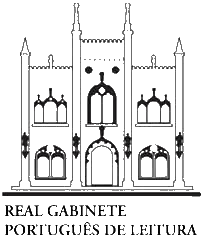Travels, landscapes, languages: the greatness of the ephemeral in Saramago’s essays
DOI:
https://doi.org/10.37508/rcl.2023.nEsp.a842Keywords:
Jose Saramago, Chronicle, Questioning, ExperienceAbstract
There is in Jose Saramago’s work a search for understanding the world toward the involvement of the Man with the Word. In his chronicles, produced over eight years (1968-1975), this relation is explored in several ways, since this genre oscillates from the everyday acts to the transcendental, from laughter to melancholy, from the subtle to the pamphleteering, becoming a kind of “style laboratory” for the future Nobel. Thus, the chronicles are a fundamental element in his formation, constructing several aspects of the author’s persona. In this article, three main axes are established: Travel, Landscape and Language; and it is from them that we can observe Saramago’s literary game composition. The first presents Jose Saramago as a homo viator, i. e., as someone in a continuous search to understand himself and the time and place in which he lives. The second visualizes a field that expands, and that encompasses several perspectives to the chronicler does not be a mere observer of the “spectacle of the world”. The third, having the word as a central element, shows the chronicler as a reader of the tradition and as a questioning and ironic writer.
Downloads
References
AGUILERA, Fernando Gómez. José Saramago: a consistência dos sonhos (Cronobiogra-fia). Lisboa: Caminho, 2008.
AGUILERA, Fernando Gómez. (sel. e org.) As palavras de Saramago. São Paulo: Com-panhia das Letras, 2010.
BAKHTIN, Mikhail. Problemas da poética de Dostoiévski. Trad.: Paulo Bezerra. Rio de Janeiro: Forense Universitária, 2010.
BARTHES, Roland. O prazer do texto. Trad.: J. Guinsburg. São Paulo: Perspectiva, 2008.
BENJAMIN, Walter. Magia e técnica, arte e política. Trad: Sérgio Paulo Rouanet. São Paulo: Brasiliense, 1994.
COLLOT, Michel. Poética e filosofia da paisagem. Trad.: Ida Alves. Rio de Janeiro: Edito-ra Raquel, 2013.
COSTA, Horácio. José Saramago: 6 de novembro de 1985. Cotia: Ateliê Editorial, 2022.
LAUSBERG, Heinrich. Elementos de retórica literária. Trad.: R. M. Rosado Fernandes. Lisboa: Fundação Calouste Gulbenkian, 2011.
LÖWY, Michael. Walter Benjamin: aviso de incêndio – uma leitura das teses “Sobre o conceito de história”. Trad.: Wanda Nogueira Caldeira Brant. São Paulo: Boitempo, 2005.
PALMA-FERREIRA, João. “José Saramago: Deste mundo e do outro”. In: Coló-quio/Letras, n° 06. Lisboa: Fundação Calouste Gulbenkian. Mar. 1972, p. 83-84.
PESSOA, Fernando. Obra poética. Rio de Janeiro: Nova Aguilar, 1983.
REIS, Carlos. Diálogos com José Saramago. Lisboa: Caminho, 1998.
SARAMAGO, José. O ano da morte de Ricardo Reis. São Paulo, Companhia das Letras, 1988.
SARAMAGO, José. História do cerco de Lisboa. São Paulo: Companhia das Letras, 1989.
SARAMAGO, José. Os apontamentos. Lisboa: Editorial Caminho, 1990.
SARAMAGO, José. Manual de pintura e caligrafia. São Paulo: Companhia das Letras, 1992.
SARAMAGO, José. A jangada de pedra. São Paulo: Círculo do Livro, 1994a.
SARAMAGO, José. Objeto quase. São Paulo: Companhia das Letras, 1994b.
SARAMAGO, José. Ensaio sobre a cegueira. São Paulo: Companhia das Letras, 1995.
SARAMAGO, José. A bagagem do viajante. São Paulo: Companhia das Letras, 1996a.
SARAMAGO, José. Levantado do chão. Rio de Janeiro: Record, 1996b.
SARAMAGO, José. Deste mundo e do outro. Lisboa: Editorial Caminho, 1997a.
SARAMAGO, José. Viagem a Portugal. São Paulo: Companhia das Letras, 1997b.
SARAMAGO, José. Cadernos de Lanzarote. São Paulo: Companhia das Letras, 1997c.
SARAMAGO, José. Que farei com este livro? São Paulo: Companhia das Letras, 1998.
SARAMAGO, José. Cadernos de Lanzarote II. São Paulo: Companhia das Letras, 1999a.
SARAMAGO, José. Folhas políticas (1976-1998). Lisboa: Editorial Caminho, 1999b.
SARAMAGO, José. O conto da ilha desconhecida. São Paulo: Companhia das Letras, 2002.
SARAMAGO, José. Ensaio sobre a lucidez. São Paulo: Companhia das Letras, 2004.
SARAMAGO, José. As pequenas memórias. Lisboa: Editorial Caminho, 2006.
SARAMAGO, José. Caim. São Paulo: Companhia das Letras, 2009.
SARAMAGO, José. Alabardas, alabardas, espingardas, espingardas. São Paulo: Compa-nhia das Letras, 2014.
SARTRE, Jean-Paul. Que é a literatura? Trad: Carlos Felipe Moisés. Rio de Janeiro: Ática, 1989.
SEIXO, Maria Alzira. Lugares da ficção em José Saramago. Lisboa: Imprensa Nacional-Casa da Moeda, 1999.
SÓFOCLES. Édipo rei. In: ÉSQUILO, SÓFOCLES, EURÍPIDES. Tragédias gregas. São Paulo: Abril Cultural, 1982.
Downloads
Published
How to Cite
Issue
Section
License
Authors who publish in Convergência Lusíada agree with the following terms:
- Authors retain copyright and grant the journal right of first publication with the work simultaneously licensed under a Creative Commons Attribution-NonCommercial 4.0 International License (CC-BY-NC 4.0) that allows others to share the work with an acknowledgment of the work's authorship and initial publication in this journal.
- Authors may enter into separate, additional contractual arrangements for the non-exclusive distribution of the journal’s published version of the work (e.g., post it to an institutional repository or publish it in a book), with an acknowledgment of its initial publication in this journal.
- Authors are permitted and encouraged to post their work online (e.g., in institutional repositories or on their website) prior to and during the submission process, as it can lead to productive exchanges, as well as earlier and greater citation of published work.

Revista Convergência Lusíada is licensed under a Creative Commons - Atribuição-NãoComercial 4.0 Internacional.









